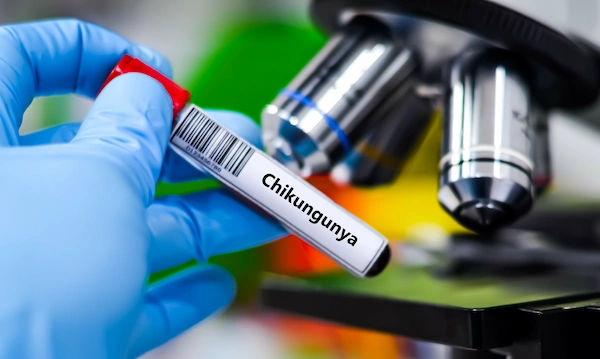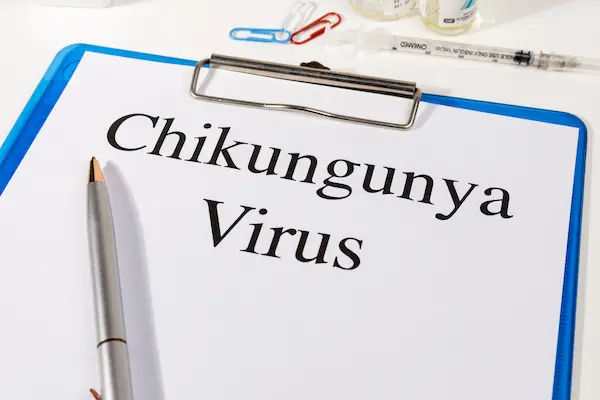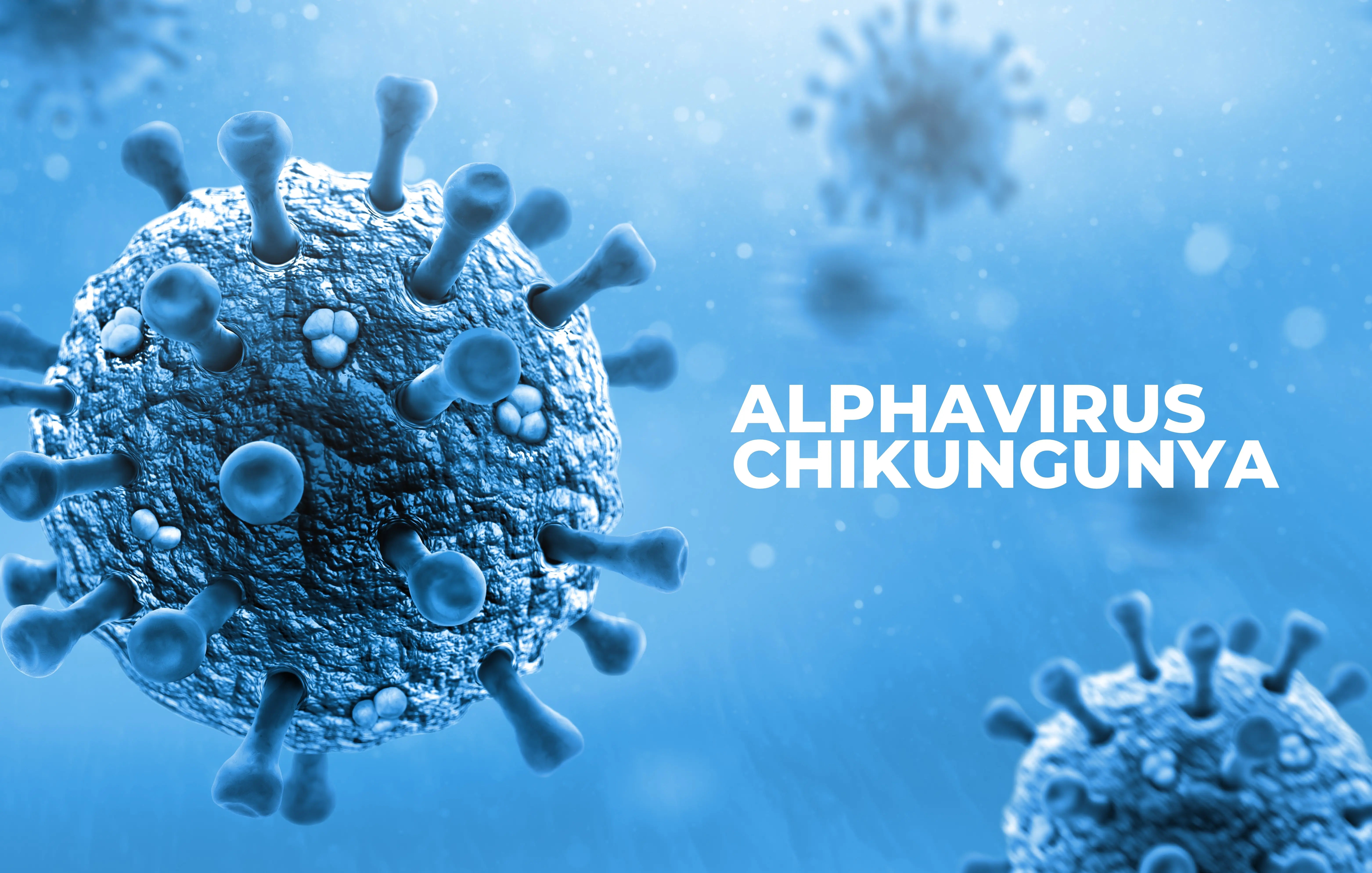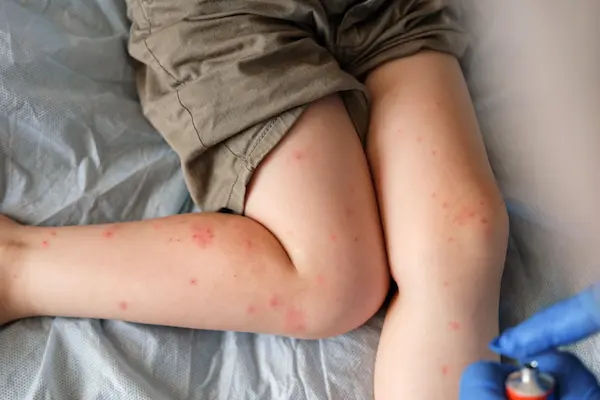Chikungunya Treatment After Diagnosis
Know about chikungunya treatment after diagnosis, including symptom relief, hydration, rest, and medical care to support faster recovery and comfort.

Written by Dr. J T Hema Pratima
Reviewed by Dr. Dhankecha Mayank Dineshbhai MBBS
Last updated on 13th Jan, 2026
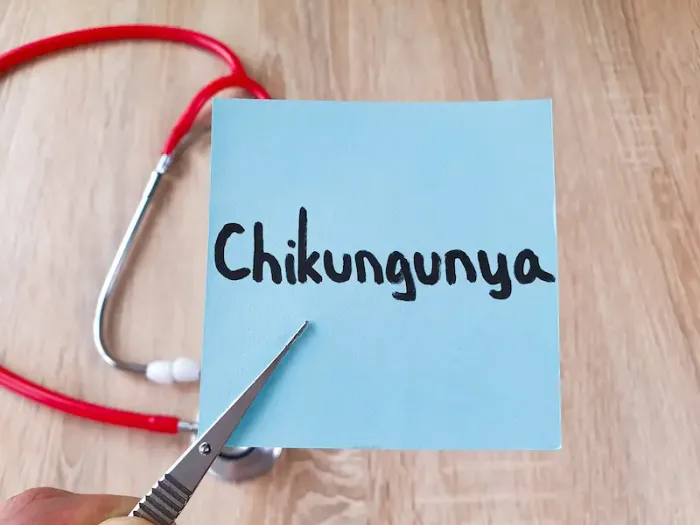
Introduction
Chikungunya is a viral infection spread by mosquitoes, causing fever, joint pain, and fatigue. While it is rarely life-threatening, the symptoms can be severe and long-lasting. If you or a loved one has been diagnosed with Chikungunya, you might be wondering about the best ways to manage it.
This guide will help you understand what Chikungunya is, common symptoms and how they affect you, treatment options after diagnosis, lifestyle and dietary tips for faster recovery and when to seek medical help.
Understanding Chikungunya
Chikungunya is caused by a virus transmitted through the bite of infected Aedes mosquitoes (the same mosquitoes that spread dengue and Zika). Unlike malaria, which spreads at night, these mosquitoes bite mostly during the day.
Once infected, symptoms usually appear 3–7 days after the mosquito bite. While most people recover within 1–2 weeks, some may experience joint pain for months or even years, a condition called chronic Chikungunya arthritis.
Consult a General Physician for the best advice
Common Symptoms of Chikungunya
The most noticeable signs include:
High fever (sudden onset)
Severe joint pain (often in hands, wrists, knees, and ankles)
Muscle pain & weakness
Headache & fatigue
Rash (in some cases)
Nausea or vomiting
Unlike dengue, Chikungunya rarely causes severe bleeding or shock, but the joint pain can be debilitating.
Treatment After Diagnosis
There is no specific antiviral medicine for Chikungunya, so treatment focuses on relieving symptoms and helping your body recover naturally.
1. Medications for Symptom Relief
Paracetamol (Acetaminophen) – Helps reduce fever and pain.
Avoid NSAIDs (like Ibuprofen, Aspirin) – Unless prescribed by a doctor, as they may increase bleeding risk if dengue is also suspected.
Doctor-prescribed pain relievers – For severe joint pain, your doctor may recommend safe anti-inflammatory drugs.
Never self-medicate with steroids or strong painkillers without medical advice.
2. Home Care & Natural Remedies
Rest – Your body needs energy to fight the virus. Avoid strenuous activities.
Hydration – Drink plenty of water, coconut water, ORS, or herbal teas to prevent dehydration.
Cold compresses – Help reduce joint swelling and fever.
Gentle stretching – Light exercises can prevent stiffness in joints.
3. Diet for Faster Recovery
A balanced diet strengthens immunity and reduces inflammation:
Anti-inflammatory foods – Turmeric, ginger, garlic, leafy greens, and berries.
Protein-rich foods – Eggs, lentils, yogurt, and lean meats help repair tissues.
Vitamin C sources – Citrus fruits, bell peppers, and amla boost immunity.
Avoid oily, spicy, or processed foods – They can worsen inflammation.
Managing Long-Term Joint Pain (Chronic Chikungunya Arthritis)
Some patients experience lingering joint pain for months. Here’s how to manage it:
Physiotherapy – Helps restore joint movement.
Warm water soaks & gentle massages – Ease stiffness.
Yoga & low-impact exercises – Improve flexibility.
Consult a rheumatologist if pain persists beyond 3 months.
When to Seek Emergency Care
Most cases improve with home care, but contact a doctor if you experience:
Persistent high fever beyond 5 days
Severe dehydration (dry mouth, dizziness, low urine output)
Unusual bleeding or bruising
Confusion or extreme weakness
Preventing Chikungunya in the Future
Since there is no vaccine yet, prevention is key:
Use mosquito repellents (DEET-based or natural options like citronella).
Wear long-sleeved clothes during peak mosquito hours (early morning & late afternoon).
Keep surroundings clean – Remove stagnant water where mosquitoes breed.
Use mosquito nets & screens at home.
Final Thoughts
Chikungunya can be tough, but with proper care, rest, and a healthy diet, most people recover fully. Stay patient, follow medical advice, and take precautions to avoid mosquito bites in the future.
Consult a General Physician for the best advice
Consult a General Physician for the best advice

Dr. Dhanraj K
General Physician/ Internal Medicine Specialist
25 Years • MBBS, MD Internal Medicine - Osmania Medical College, Hyderabad
Hyderabad
Apollo Hospitals Jubilee Hills, Hyderabad
(400+ Patients)

Dr. Vivek D
General Physician
4 Years • MBBS
Bengaluru
PRESTIGE SHANTHINIKETAN - SOCIETY CLINIC, Bengaluru

Dr Syed Mateen Pasha
General Physician
2 Years • MBBS
Bengaluru
PRESTIGE SHANTHINIKETAN - SOCIETY CLINIC, Bengaluru

Dr. Syed Ismail Ali
General Practitioner
7 Years • MBBS
Hyderabad
Apollo 24|7 Clinic, Hyderabad

Dr. Ajay K Sinha
General Physician/ Internal Medicine Specialist
30 Years • MD, Internal Medicine
Delhi
Apollo Hospitals Indraprastha, Delhi
(200+ Patients)
